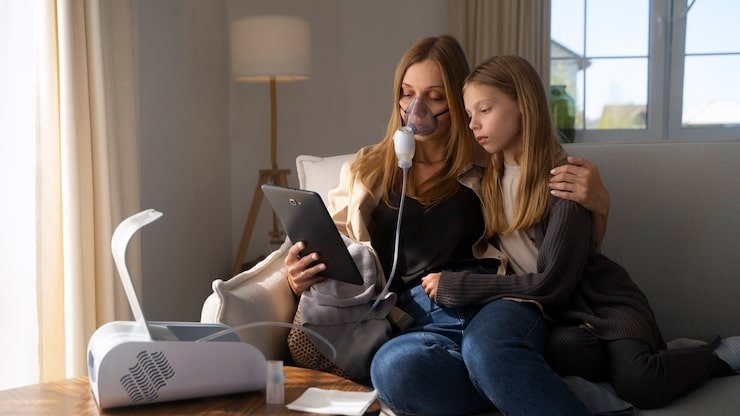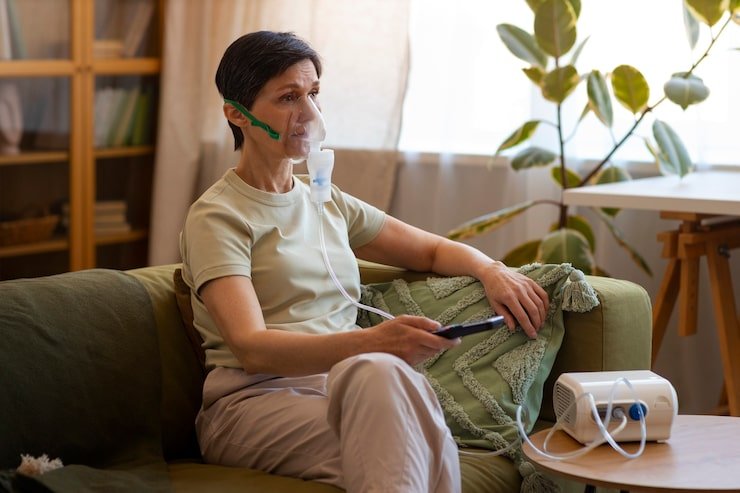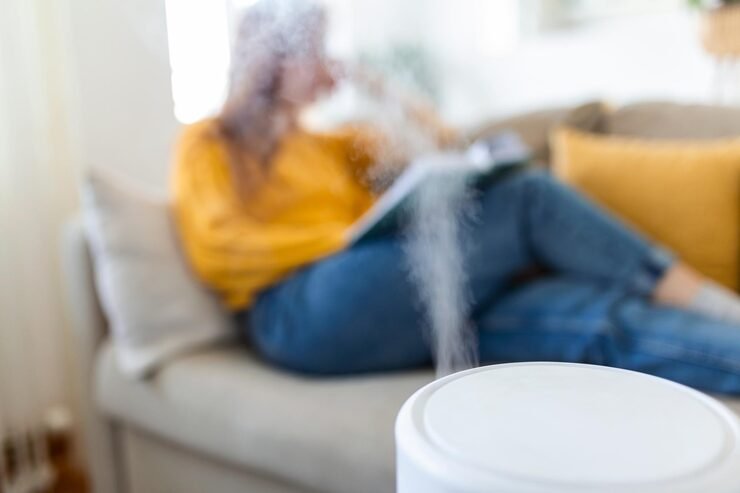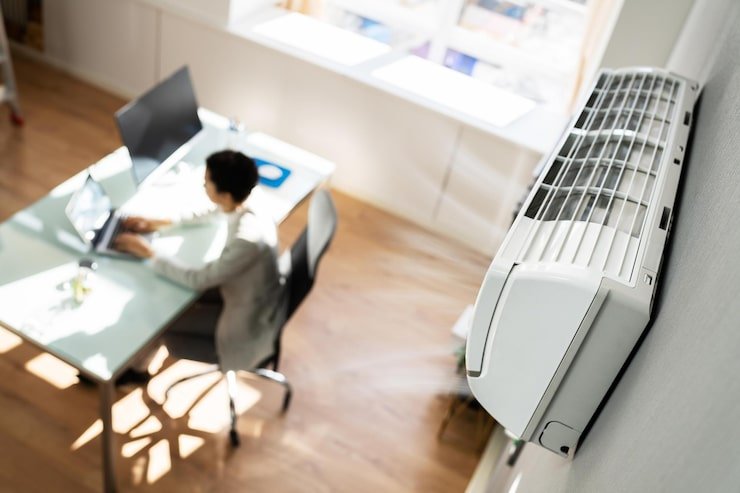The Role of Air Quality Testing in Allergy and Asthma Prevention
- admin323029
- Blog
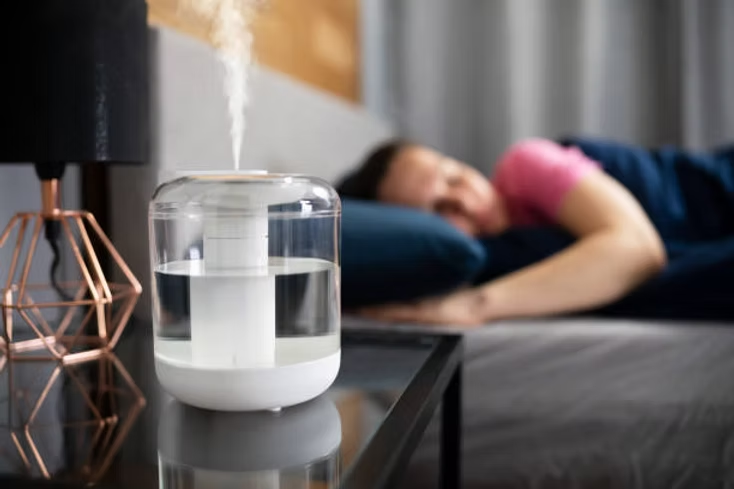
If you or your family suffer from allergies or asthma, poor indoor air quality might be making it worse. The air you breathe inside your home could be filled with invisible triggers—dust mites, pet dander, mold spores, and chemicals—that worsen respiratory symptoms. Fortunately, Air Quality Testing offers a clear solution.
This blog explores how Air Quality Testing plays a vital role in allergy and asthma prevention. From identifying hidden pollutants to offering long-term fixes, we’ll guide you through practical steps to breathe easier, especially for residents in Melros and nearby areas.
Why Indoor Air Quality Matters
Indoor air can be up to five times more polluted than outdoor air, according to the EPA. We spend 90% of our time indoors, so breathing clean air isn’t just a luxury—it’s a health necessity.
Many allergy and asthma sufferers in Melros may not realize that indoor air pollution could be the main cause of their flare-ups. Pollutants like volatile organic compounds (VOCs) from cleaning products, tobacco smoke, mold, and dust are common culprits. These allergens can linger in the air and continuously irritate the lungs.
That’s why Air Quality Testing is not optional—it’s essential.
H2: How Air Quality Testing Helps Prevent Allergies and Asthma
Air Quality Testing is the first step toward better respiratory health. It helps you pinpoint the exact allergens and pollutants in your home. Whether you’re in a high-traffic area like Main Street or a quieter part of Melros, local environmental factors still influence your indoor air.
1. Detects Common Allergens
Testing reveals common indoor allergens like pollen, pet dander, dust mites, and mold. These are some of the most aggressive asthma and allergy triggers, especially in kids and the elderly.
2. Identifies Harmful Chemicals
From air fresheners to paint, many household products release VOCs that worsen respiratory conditions. Testing helps you identify these silent invaders.
3. Improves HVAC Efficiency
Your heating and cooling system could be spreading allergens around your home. Air Quality Testing often includes checking your HVAC system for mold and bacteria buildup.
4. Supports Long-Term Health
Once testing is done, you can take targeted action—like installing air purifiers, dehumidifiers, or changing filters regularly—to reduce symptoms and prevent future attacks.
Common Indoor Air Pollutants Affecting Allergy and Asthma Sufferers
To know what you’re up against, let’s look at the common pollutants found during Air Quality Testing:
-
Mold spores – thrive in damp bathrooms and basements
-
Dust mites – love carpets, bedding, and furniture
-
Pet dander – sticks to clothes, curtains, and air ducts
-
Pollen – sneaks indoors through open windows or on your clothes
-
VOCs – released from cleaning products, paint, and plastics
Living in Melros, seasonal changes can increase pollen and mold levels, which makes testing even more valuable during spring and fall.
Signs You Might Need Air Quality Testing in Melros
Many Melros homeowners don’t realize they’re breathing poor air until symptoms become too hard to ignore. Here are signs that your indoor air may need testing:
-
Frequent sneezing or coughing indoors
-
Asthma attacks that seem triggered inside the home
-
Persistent dry throat or itchy eyes
-
Musty or chemical-like odors
-
Visible mold or mildew on walls or vents
If any of these sound familiar, schedule an Air Quality Testing appointment to get clear answers.
Practical Steps to Improve Indoor Air After Testing
Once testing reveals the source of indoor pollutants, you can take action:
1. Clean Smart
Use HEPA vacuum cleaners and fragrance-free cleaning supplies. Regularly wash bedding and curtains.
2. Improve Ventilation
Open windows on clear days, use exhaust fans in kitchens and bathrooms, and consider mechanical ventilators.
3. Use Air Purifiers
Invest in a HEPA air purifier for the most-used rooms, especially bedrooms and living areas.
4. Fix Moisture Issues
If mold is detected, a dehumidifier can help, especially in basements and bathrooms.
5. Maintain HVAC Systems
Clean or replace filters every 1-2 months. Hire a professional to inspect and clean ducts if needed.
Local Insight: Air Quality Testing in Melros
Melros residents often deal with unique indoor air challenges due to older buildings and seasonal weather changes. Homes near Lynn Fells Parkway may experience increased pollen infiltration during spring.
Getting your home professionally tested by a local specialist who understands Melros-specific air issues can help you create a safer living environment for your family.
Trusted Resources
-
EPA Indoor Air Quality Guide
-
AAFA Asthma and Allergy Foundation
-
CDC Asthma Resources
Conclusion: Take Control of Your Indoor Air
Allergies and asthma don’t have to control your life. With the right tools and insights, you can take back your home. Air Quality Testing gives you clarity—and a roadmap to better health.
Whether you live near Lynn Fells Parkway or the heart of Melros, improving your indoor air starts with one step: testing.
Breathe easier today—contact us now to schedule a professional Air Quality Test and enjoy a healthier home tomorrow.
FAQs About Air Quality Testing
1. What is Air Quality Testing?
Air Quality Testing involves measuring pollutants like dust, mold, VOCs, and allergens in your indoor environment. It helps identify the causes of respiratory issues and poor air.
2. How does Air Quality Testing help asthma sufferers?
Testing helps pinpoint asthma triggers like mold spores or dust mites. Once identified, you can remove or reduce them, creating a safer environment for asthma sufferers.
3. Is Air Quality Testing necessary for new homes?
Yes, even new homes can have poor indoor air from off-gassing materials, construction dust, and new paint. Air Quality Testing ensures your new home is truly safe.
4. How often should I get Air Quality Testing done?
For homes in Melros, we recommend testing every 1-2 years, especially if someone in the home has allergies or asthma, or if you notice changes in air quality.
5. How much does Air Quality Testing cost in Melros?
Prices vary, but expect a range from $150–$500 depending on the size of your home and type of tests. The investment is worth the long-term health benefits.
Are you worried about the cleanliness of your space?
Let us help you! Cleaning services are our specialty, and we offer a complete range of cleaning and maintenance services. Get a free estimate!

